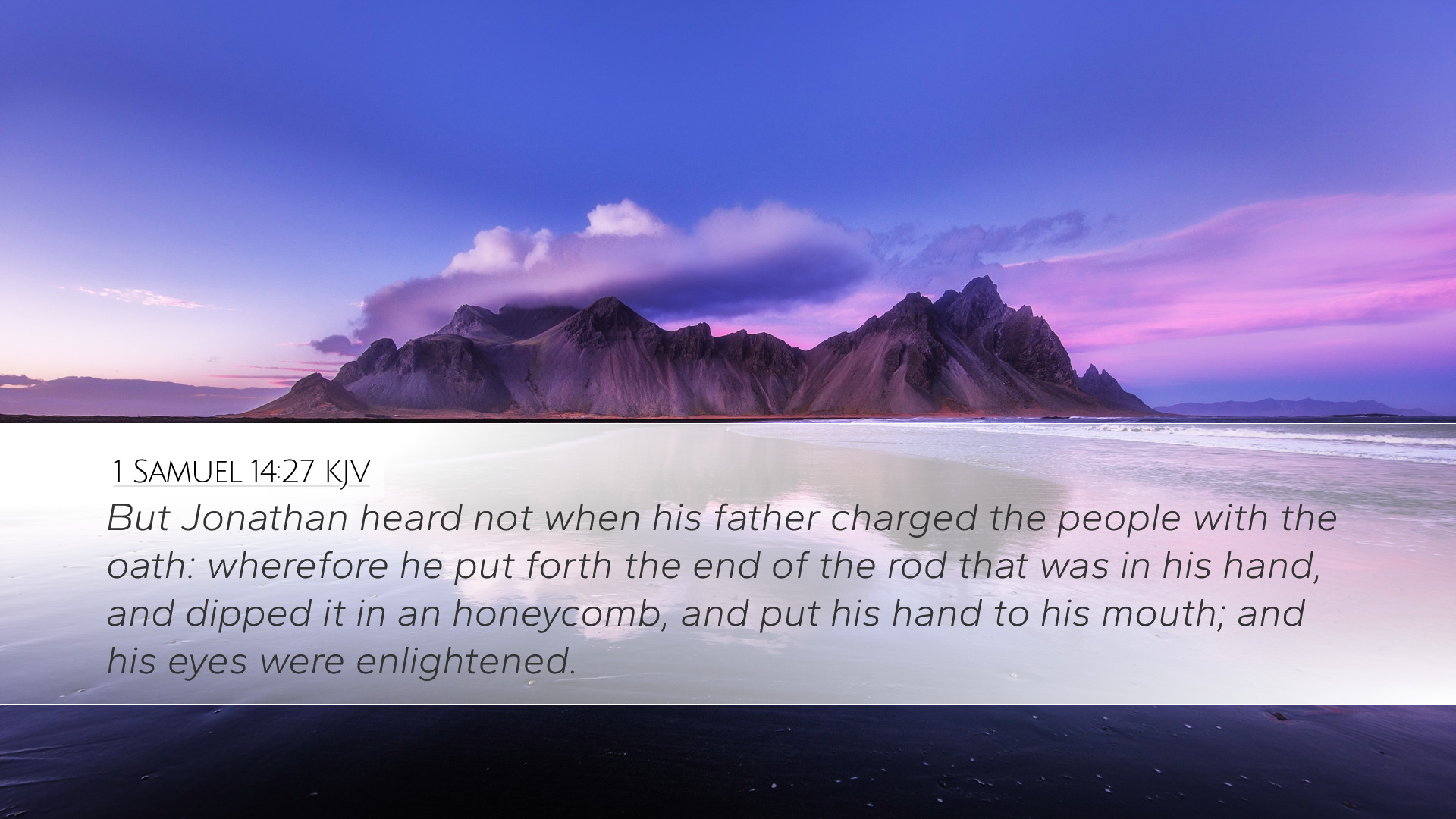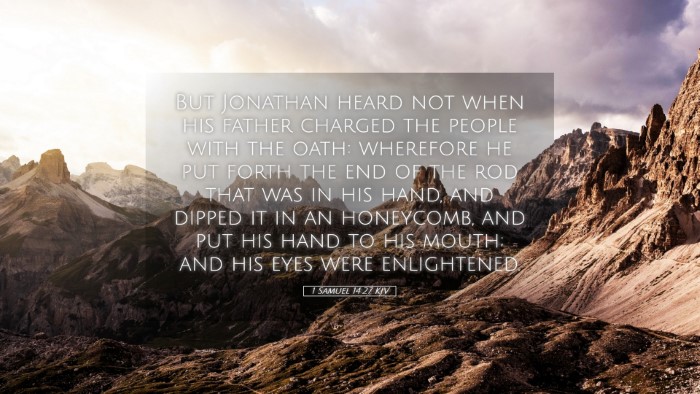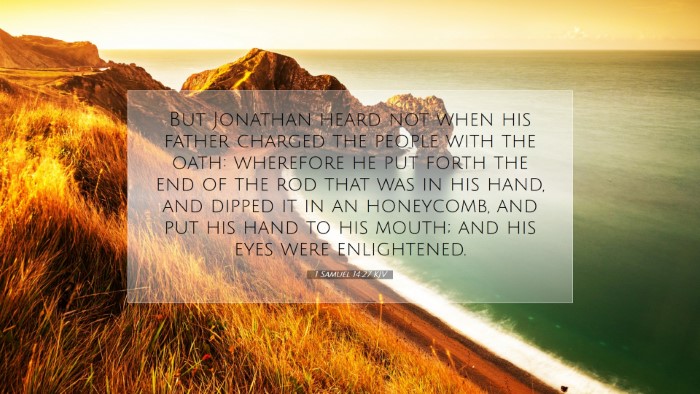Commentary on 1 Samuel 14:27
Bible Verse (1 Samuel 14:27, KJV): "But Jonathan heard not when his father charged the people with the oath: wherefore he put forth the end of the rod that was in his hand, and dipped it in a honeycomb, and put his hand to his mouth; and his eyes were enlightened."
Contextual Overview
The passage of 1 Samuel 14 encompasses a critical point in Israel's history, portraying the tension between Saul, the king, and Jonathan, his son. The context of the chapter reveals a conflict with the Philistines and illustrates the covenant between God and His people. In this specific verse, we see Jonathan unknowingly transgressing a command his father had imposed on the army. This highlights themes of leadership, obedience, and the consequences of actions during times of war.
Expository Insights
Matthew Henry's Commentary: Henry emphasizes the significance of Jonathan's action in relation to his father Saul's rash oath. The oath was aimed at preserving the integrity and discipline of the troops, yet it inadvertently led to a negative impact when Jonathan, unaware of the command, partook in the honey. This act of consuming the honey not only nourished him but also brought clarity to his understanding (eyes enlightened), showcasing how God often uses our own needs to demonstrate His providence. The contrast between Saul’s rigid leadership style and Jonathan’s intuitive actions serves as a lesson in the balance between authority and wisdom.
Albert Barnes' Notes: Barnes focuses on the implications of Jonathan's actions within the narrative. He notes that Jonathan's act of eating honey reveals his unintentional breaking of Saul’s command. The verse highlights the nature of leadership under duress, where Saul's instructions, although presumably well-intentioned, led to a diminishing of morale among the troops. Jonathan’s restored sight is emblematic of divine insight granted, especially when one is obedient to the natural law of self-preservation. His revitalization from eating the honey serves as a metaphor for spiritual enrichment and understanding when we engage with what God has provided, often in the midst of otherwise harsh circumstances.
Adam Clarke's Commentary: Clarke elaborates on the symbolism in Jonathan's eating of the honey. He points out that the 'honeycomb' represents not only nourishment but also the sweetness of divine revelation. Jonathan's action can be seen as a moment of enlightenment amidst the chaos of battle, indicative of the broader biblical theme where feasting on God's word is equated to spiritual sustenance. Clarke suggests that this passage serves to illustrate the dangers of legalism, advocating instead for a heartfelt approach to God’s commands that embraces grace and wisdom.
Theological Implications
- Leadership and Authority: The dynamics between Jonathan and Saul reflect broader theological tenets regarding the nature of leadership. Saul’s imposition of an oath can be viewed as legalistic, devoid of the compassion and wisdom that characterizes true leadership as seen in the life of Jonathan.
- Spiritual Enlightenment: Jonathan's eyes being ‘enlightened’ resonates with the scriptural theme of enlightenment that comes from God’s gifts. This act of eating signifies not just physical sustenance but serves as a reminder of the spiritual nourishment that comes from engaging intimately with God’s provisions.
- Moral Consequences: Jonathan's ignorance of the oath illustrates the moral implications of decisions made by leaders, and how the unintended consequences of their actions can affect others. This serves as a call for leaders to act in wisdom, considering the wider impact of their commands.
Conclusion
1 Samuel 14:27 draws a critical line between the intention behind leadership actions and the outcomes they produce. Through the lens of various commentaries, we see Jonathan as a figure of divine insight and natural instinct, contrasted with Saul's heavy-handed approach to command. This passage provides rich material for reflection on leadership, obedience, and the grace that is often encountered in the midst of human error. The themes echoed in this verse remain relevant for pastors, theologians, and students, reminding them of the balance needed in authority and the nourishment that comes from engaging with God’s word and provisions.


